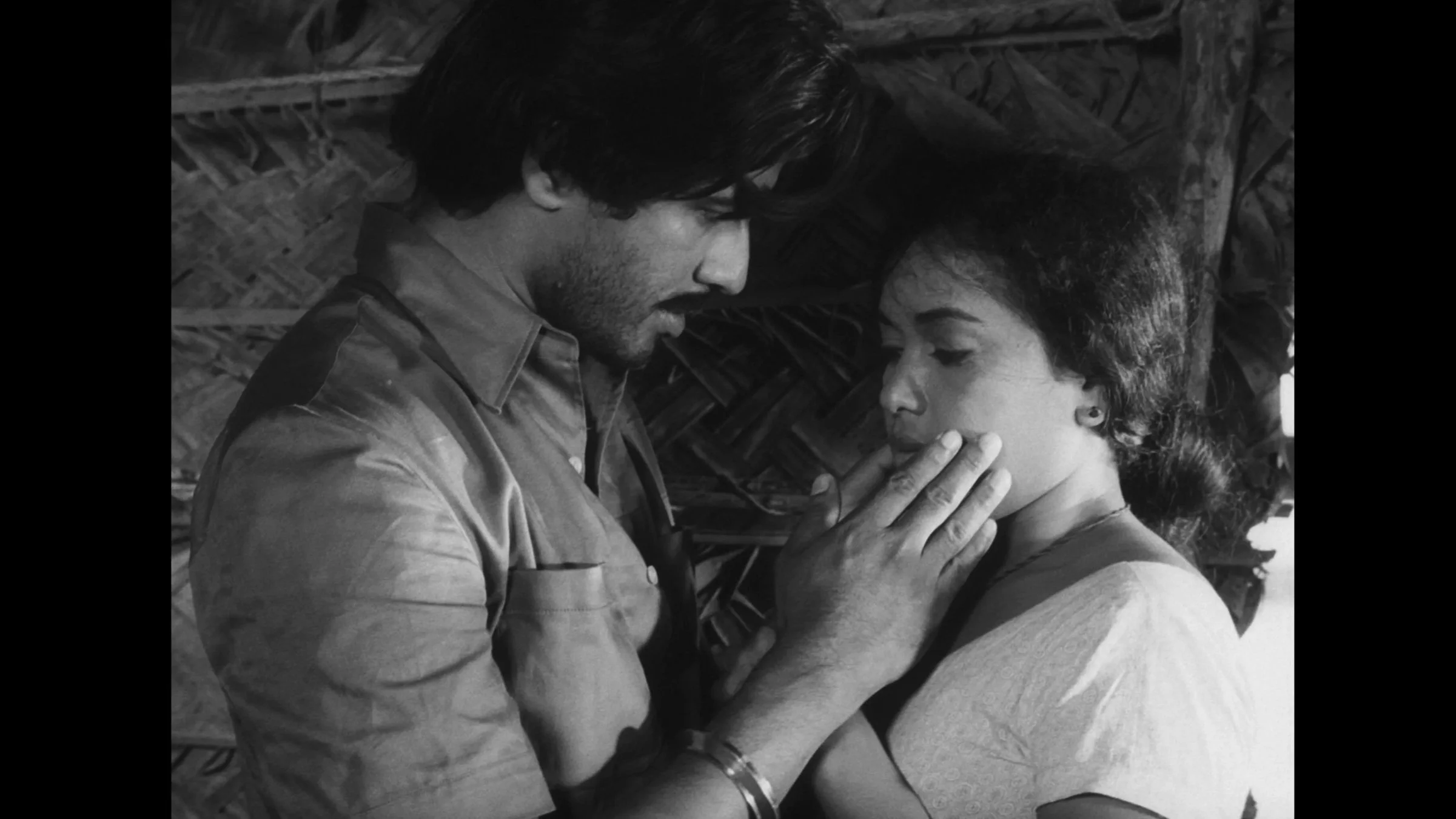The Wasps Are Here
A journey back to another age of cinema allows us an introduction to an unknown talent.
In Sri Lanka, The Wasps Are Here, a film made by Darmasena Pathiraja in 1978, is regarded as one of the very best examples of home-grown cinema. Its reputation has encouraged the Asian Film Archive to make a 4K restoration and it is that which reaches us now on Mubi. The only films from Sri Lanka which have made any kind of a mark here were those created over fifty years ago by Lester James Peries who has been described as the father of Sri Lankan cinema (he lived from 1919 to 2018). Pathiraja was a younger director born in 1943, but he too died in 2018 having given us some nine feature films although none of them was released in British cinemas. Like Ingmar Bergman he appears to have favoured a number of actors who would appear again and again in his works.
For a British reviewer coming to Pathiraja’s work for the first time now, making a just assessment of The Wasps Are Here is far from easy. Shot in black and white and in an old-fashioned ratio, it smacks of a past age of cinema, not so much that of its own time but of a period earlier still. However, that adds to the character of the piece since it seems well suited to a tale set in a small coastal village where the way of life is simple and behind the times. Natural sounds, especially that of the sea, abound and underline the extent to which the sense of atmosphere is a key element in the film. The locals deal in fish and it is the purchase of fish that brings in outside businessmen like Victor (Vijaya Kumaratunga). He had grown up there and now returns representing his father who had built up an established trade but has become ill.
The personal drama that develops finds Victor having an affair with a local girl, Helen (Malini Fonseka), who is drawn to him despite being engaged to Cyril (Cyril Wickramage). Anton (Joe Abeywickrama) is the village patriarch and, doubtless influenced by the hostility that he feels towards Victor whose dealing makes him a rival, he sides with Cyril. The various antagonisms lead to violence and, while some of the plotting feels like standard fare, one assumes that the central purpose of the film will be to show a community being exploited by outsiders. Indeed, the choice of title with its reference to wasps that feed off flowers is a clear pointer in this direction. Furthermore, late on we find Weera (Wimal Kumara de Costa), a man with Communist beliefs, offering strong criticism of Victor. He not only describes him as an exploiter but also speaks up for the old rural life-style and for the need of the people to rise up.
Even so, the tale develops in ways that are not always clear-cut and that becomes something of a disadvantage at times. It is true that the depth of Victor’s attachment to Helen is increasingly open to question, but we largely view events from his angle and the villagers are for the most part unappealing people whose hostility to outsiders does not necessarily feel justified. It is apparent that Helen genuinely prefers Victor to Cyril (she may well be the victim of what is being set up as an arranged marriage but this is one of several points on which the film is not entirely clear). In any case one often feels sympathy for Victor and this somewhat muddies the waters and leaves doubts as to just how effective the film is in making its points.
For a Sri Lankan audience, familiarity with the background may well make a difference. For the rest of us, the setting has a freshness that is welcome. But the main asset is the self-evident fact that Pathiraja had a distinctive voice as a filmmaker and that he had an ideal editor in Sextus Aponsu. Between them they create many memorable sequences and, if the film takes modern audiences into another world realised in the style of a past age, it is done with a skill that can still impress. At the very least, this is a fascinating novelty.
Original title: Bambaru Avith.
MANSEL STIMPSON
Cast: Vijaya Kumaratunga, Joe Abeywickrama, Malini Fonseka, Ruby de Mel, Wimal Kumara de Costa, Amarasiri Kalansooriya, Daya Tennekoon, Cyril Wickramage, Swarnamali Perera.
Dir Darmasena Pathiraja, Pro Darmasena Pathiraja, Screenplay Darmasena Pathiraja and Malini Pathiraja, Ph Donald Karunaratna, Art Dir Sarachandra Samarakkody, Ed Sextus Aponsu, Music Premasiri Khemadasa.
Saranga Saluru-Mubi.
124 mins. Sri Lanka. 1978. Rel: 14 July 2021. No Cert.


